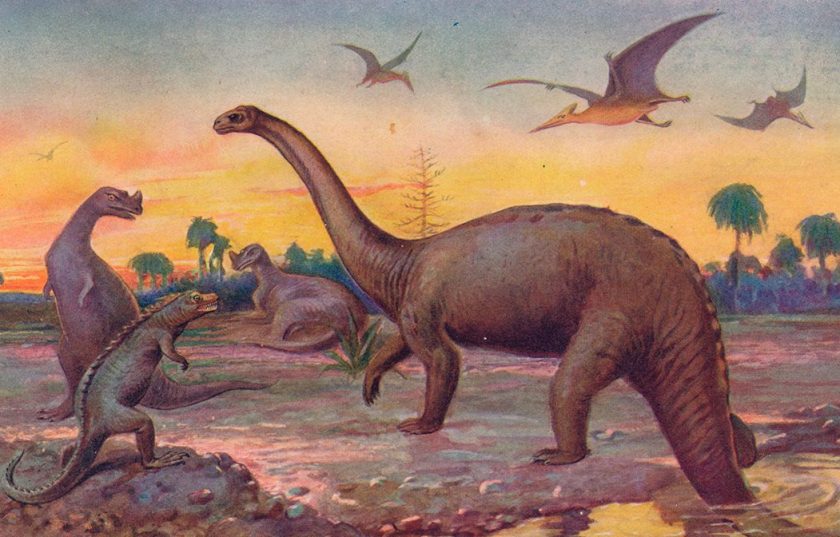
If you’ve watched Jurassic Park lately, it’s an entertaining movie, but you can’t help but thinking to yourself, “This will never, ever happen.” (Luckily, it hasn’t.) But one recent paleontological find in Brazil is shining new light on the origins of the dinosaur—and calling into question everything we know about the species and its origins.
According to The Economist, Dr. Max Langer, a paleontologist at the University of Sao Paulo, along with a team of researchers, excavated four fossils that have helped uncover the dinosaurs’ origin story (their findings were published in Current Biology). One was found to be 230 million years old, in great shape, and belonged to a dinosaur that was the distant cousin of the larger-than-life vegetarian sauropod, the Brachiosaurus.
But in studying the fossil, the team concluded that it belonged not to a giant veggie machine, but a small-ish meat-eater. Notes The Economist:
“That finding raises as many questions as it answers: paleontologists must now ponder when and why sauropods made the switch from eating meat to eating plants. Size probably had something to do with it: It is difficult to see how an animal the size of Brachiosaurus could have hunted enough prey to support its enormous bulk.”
The other fossils bring to light even more unanswered questions. The going theory on how the dinosaurs rose to prominence more than 200 million years ago is Darwinian by nature—they were the fittest and survived by killing off (or simply outcompeting with) weaker species. One of these groups they supposedly outdid? A reptilian ancestor known as the lagerpetid (basically, a lizard that stood on its two hind legs).
But the additional bones tell a different story: They show a lagerpetid alive during the same time period as the dinosaurs—30 million years before the Jurassic Period.
To read the team’s research in Current Biology, click here.
This article was featured in the InsideHook newsletter. Sign up now.
























